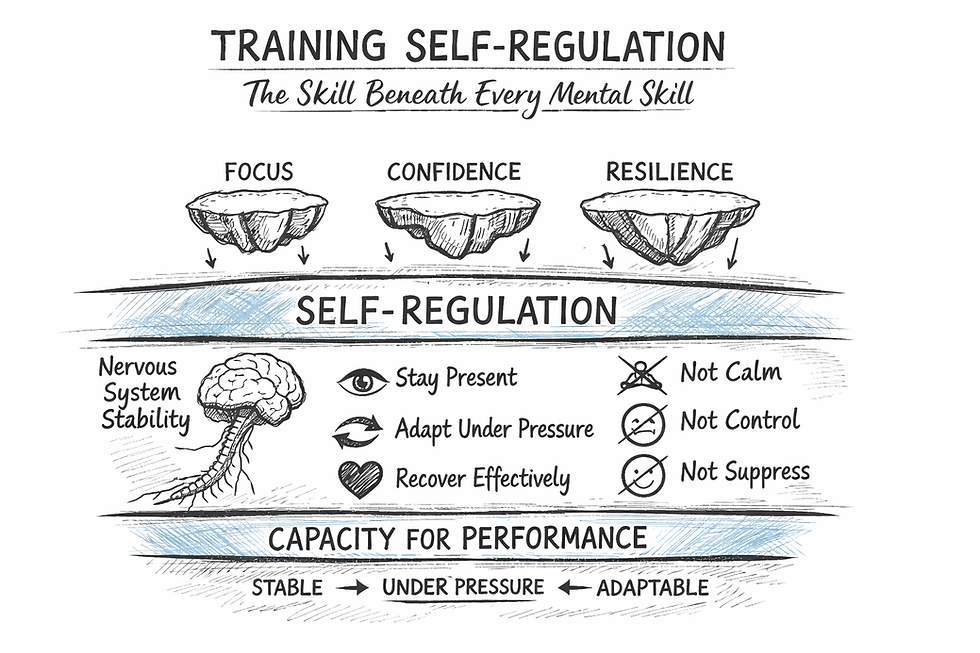Trust the Climb: Building Resilience as an Athlete
- Kate Allgood
- Jan 5, 2024
- 2 min read
We've all stood at the base of a metaphorical mountain, sweat beading on our brows, heart hammering against our ribs. The summit beckons, but the path ahead is steep, shrouded in mist, dotted with potential pitfalls. To make it to the top will require unwavering belief in your ability to navigate the unknown, conquer obstacles, and emerge stronger on the other side. This is true self-trust.
Just like any athletic skill, this trust isn't innate. It's a muscle you need to train, a mindset you need to cultivate. So, how do you forge this steel-clad mental armor? Let's explore three ways to build trust in your ability to handle whatever comes your way.

Befriend the "F-word": Failure. Every missed goal, every stumble, every "L" is a lesson waiting to be learned. Embrace them as data points, opportunities to tweak, refine, and adapt. When you reframe failure as feedback, you chip away at the fear of it, paving the way for resilience.
Celebrate the Small Victories. Don't wait for the podium. Notice and celebrate the little wins – that extra rep you cranked out, the fear you faced head-on, the technical breakthrough you achieved. These micro-victories accumulate, building a reservoir of confidence that fuels your trust in your own progress.
Practice in Adversity. Just like we train our bodies, we can train our minds for resilience. Purposefully create adversity or challenges to help you build the trust in yourself to deal with them. With each small obstacle you overcome, you learn more about yourself and how best to handle the challenges that lie ahead.
Remember, trust is a skill, not a destination. It requires practice, self-compassion, and a willingness to embrace the journey. As you hone this mental muscle, you'll notice a shift. The mountain ahead won't appear as daunting, the mist will clear revealing the path, and the obstacles will transform into stepping stones to your ultimate victory. Trust the climb, trust yourselves, and watch your resilience soar.
To your success,
Kate
Envision • Execute • Elevate
About: Kate Allgood is educated in the field of applied sport psychology. She holds two Masters degrees in psychology where she graduated with distinction. After a very successful hockey career, she has spent the past 14 years working one on one with high school, college, Olympic, and professional athletes to help them with their mindset, mental performance and mental skills training. Kate has also been a consultant for professional teams, including the Anaheim Ducks primary minor league affiliate the San Diego Gulls, to help the team and players develop their mental game. It is important to note that while Kate has graduate school training in applied sport psychology and general psychology, she does not diagnose or treat clinical disorders, and is not a licensed psychologist.
**The information provided is not to dispense medical advice or prescribe the use of any technique, either directly or indirectly, as a form of treatment for physical, emotional, or medical problems, without the advice of a physician. The information provided is only to offer information of a general nature to help you in your quest for high performance. If you know or suspect you have a health problem, it is recommended you seek your physician's advice.



Comments